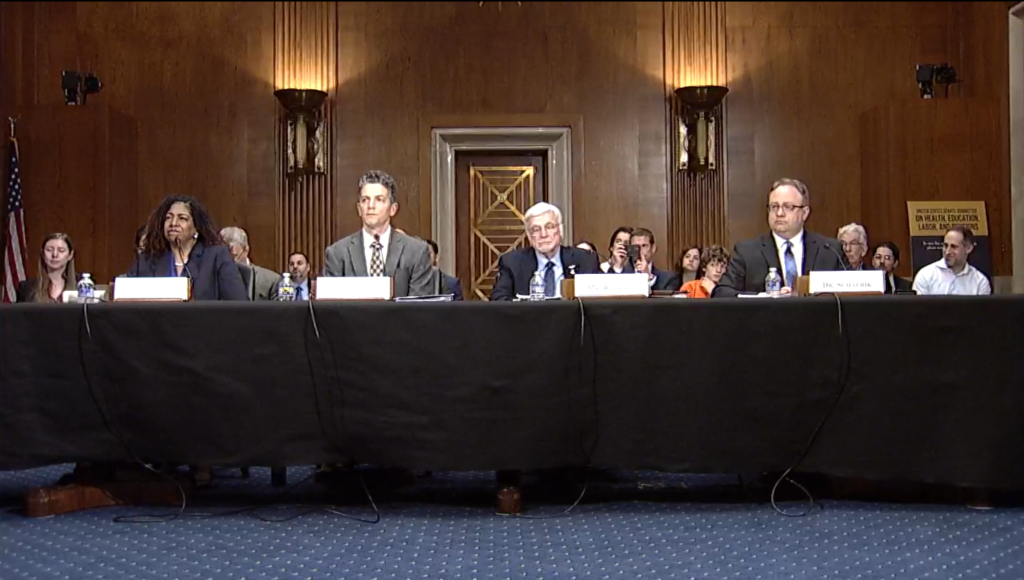Front Porch Blog

Witnesses testify at a congressional hearing about black lung disease.
On Wednesday, senators on a Health, Education, Labor and Pensions subcommittee led by Sen. John Hickenlooper, D-Colorado, held a hearing and listened to testimony from miner advocates and experts on mine safety and the black lung benefits program. United Mine Workers of America president Cecil Roberts and Dr. Drew Harris, medical director of the Black Lung Program at Stone Mountain Health Services, raised three important points:
- The rates of severe black lung are at near-historic highs in Central Appalachia.
- The black lung system is unfair to coal miners, who have to fight tooth and nail when they’re applying for benefits, often without legal representation.
- The Black Lung Benefits Improvement Act can help address unfairness in the black lung program, and Congress should take action.
The Black Lung Benefits Improvement Act (S. 3304, H.R. 6461) would increase access to legal representation for coal miners. It also would expand the use of CT scans to help coal miners prove they have complicated black lung. The act would also ensure the monthly black lung stipend coal miners and their families receive would get a fair cost-of-living adjustment every year.
Roberts noted in his testimony “[y]ou shouldn’t have to live on seven hundred and some dollars while you’re dying. It’s unfair and it needs to be made more fair.”
The act has been introduced several times over the years but has yet to advance out of the Senate committee.
You can watch the full hearing below:
PREVIOUS
NEXT
Related News

Leave a comment
Your email address will not be published. Required fields are marked *

Leave a Comment